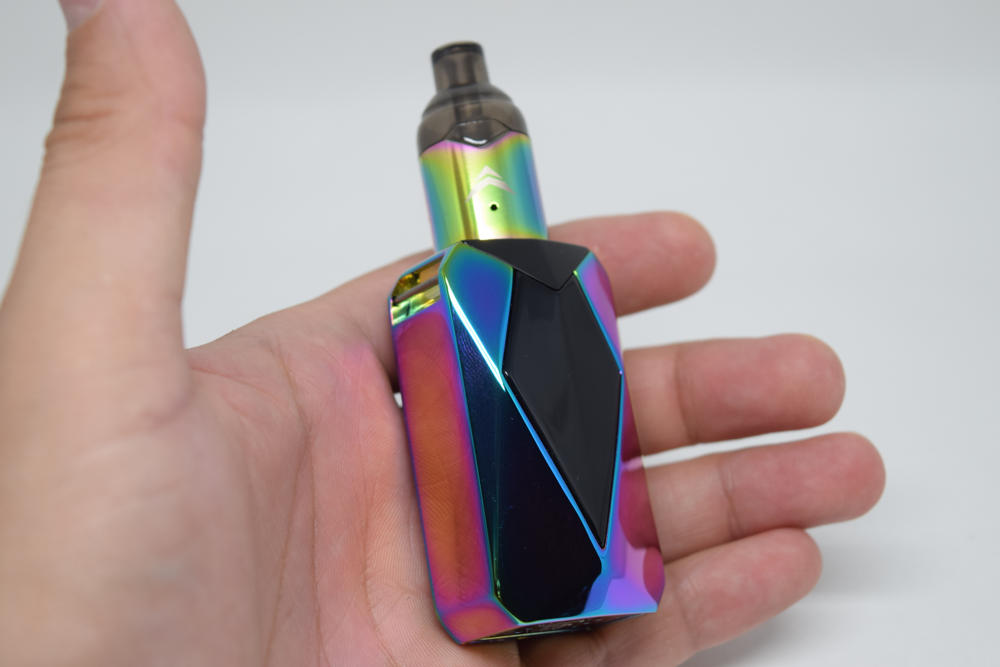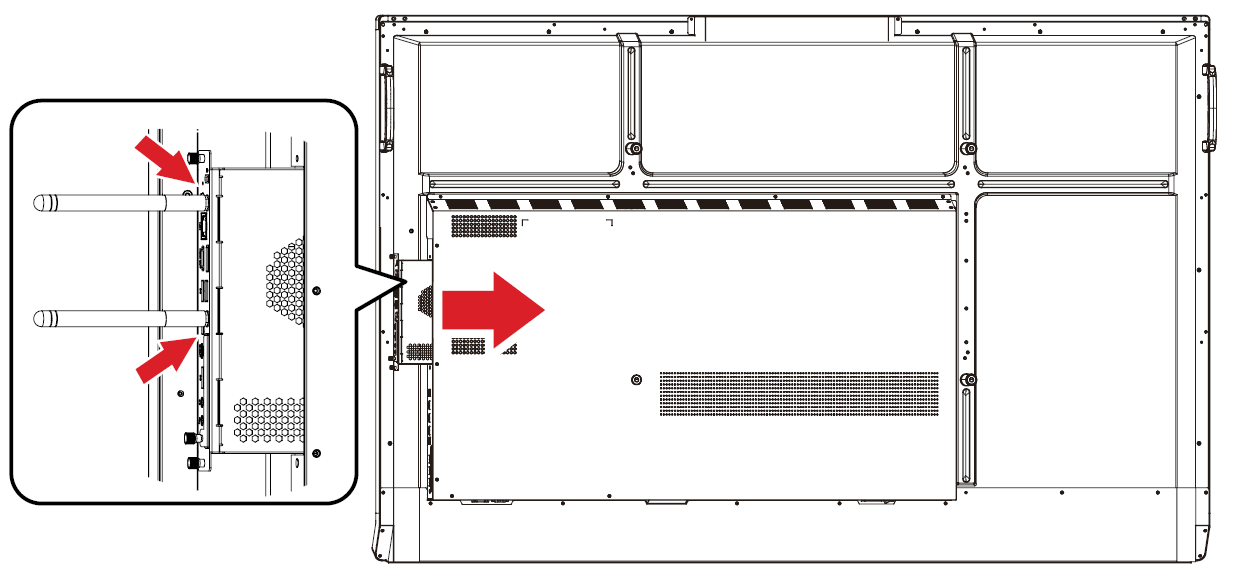RemoteIoT VPC has emerged as a revolutionary solution for businesses looking to streamline their IoT infrastructure management. By offering a secure and scalable platform, it enables organizations to connect, manage, and monitor IoT devices effortlessly. With the increasing demand for IoT solutions, RemoteIoT VPC stands out as a reliable choice for enterprises aiming to optimize their operations and enhance efficiency. This review delves deep into its features, capabilities, and how it can transform your IoT ecosystem. If you're considering adopting RemoteIoT VPC, this analysis will provide valuable insights to guide your decision-making process.
As more industries embrace IoT technology, the need for robust and secure infrastructure becomes paramount. RemoteIoT VPC addresses these concerns by providing a Virtual Private Cloud tailored specifically for IoT deployments. Its architecture ensures data security, scalability, and seamless integration with existing systems. Whether you're a small startup or a large enterprise, understanding the nuances of RemoteIoT VPC can significantly impact your IoT strategy. In this article, we'll explore its key features, benefits, and potential drawbacks to give you a well-rounded perspective.
Before diving into the details, it's essential to recognize that selecting the right IoT platform is critical for long-term success. RemoteIoT VPC offers a compelling proposition with its focus on security, flexibility, and ease of use. By evaluating its strengths and limitations, you can determine whether it aligns with your business objectives. This review aims to provide actionable insights, enabling you to make an informed decision about integrating RemoteIoT VPC into your IoT infrastructure.
Read also:Debunking The Myth Are Burmese Pythons Venomous
Why Should You Choose RemoteIoT VPC?
When evaluating IoT platforms, the primary considerations revolve around security, scalability, and ease of deployment. RemoteIoT VPC excels in these areas by offering a comprehensive suite of features designed to meet modern IoT requirements. Its Virtual Private Cloud architecture ensures that your IoT devices operate in a secure and isolated environment, minimizing the risk of unauthorized access. Additionally, the platform supports a wide range of protocols, making it compatible with diverse devices and systems.
One of the standout features of RemoteIoT VPC is its ability to scale seamlessly. As your IoT network grows, the platform dynamically adjusts to accommodate additional devices without compromising performance. This flexibility is particularly beneficial for businesses that anticipate rapid expansion. Furthermore, RemoteIoT VPC integrates effortlessly with popular cloud services, enabling you to leverage existing investments while enhancing your IoT capabilities.
What Are the Key Features of RemoteIoT VPC?
RemoteIoT VPC offers a rich set of features that cater to the diverse needs of IoT deployments. These include advanced security protocols, real-time monitoring, automated updates, and comprehensive analytics. The platform's security framework employs encryption and authentication mechanisms to safeguard sensitive data. Real-time monitoring allows you to keep track of device performance and network health, ensuring timely intervention in case of anomalies.
Automated updates ensure that your devices and software remain up-to-date with the latest patches and improvements. This not only enhances security but also optimizes performance. Additionally, the analytics capabilities of RemoteIoT VPC provide valuable insights into device behavior and network trends, enabling data-driven decision-making. These features collectively contribute to a robust and efficient IoT ecosystem.
How Does RemoteIoT VPC Enhance IoT Security?
In today's interconnected world, security remains a top priority for IoT deployments. RemoteIoT VPC addresses this concern by implementing multi-layered security measures. These include end-to-end encryption, secure authentication, and regular security audits. The platform's architecture ensures that data transmitted between devices and the cloud remains protected from unauthorized access.
Beyond encryption, RemoteIoT VPC employs advanced threat detection mechanisms to identify and mitigate potential vulnerabilities. Its security framework is continuously updated to address emerging threats, providing peace of mind to users. By prioritizing security, RemoteIoT VPC establishes itself as a trusted solution for businesses handling sensitive IoT data.
Read also:Unveiling The Magic Of Newgate Mall Theater Utah Your Ultimate Guide
What Are the Benefits of Using RemoteIoT VPC?
Adopting RemoteIoT VPC offers numerous advantages that can significantly impact your IoT operations. Firstly, its scalability ensures that your infrastructure can grow alongside your business without the need for costly upgrades. Secondly, the platform's ease of use simplifies the management of complex IoT networks, reducing the burden on IT teams. Lastly, its integration capabilities allow you to leverage existing systems while expanding your IoT capabilities.
Another benefit of RemoteIoT VPC is its cost-effectiveness. By eliminating the need for physical infrastructure, it reduces capital expenditures and operational costs. Additionally, its pay-as-you-go pricing model ensures that you only pay for the resources you use, making it an attractive option for businesses of all sizes. These benefits collectively position RemoteIoT VPC as a valuable asset for IoT deployments.
Can RemoteIoT VPC Be Customized to Meet Specific Needs?
Yes, RemoteIoT VPC offers extensive customization options to cater to unique business requirements. Its modular architecture allows you to configure the platform to align with your specific needs. Whether you require enhanced security features, custom reporting, or specialized integrations, RemoteIoT VPC can be tailored to meet your demands. This flexibility ensures that the platform remains relevant and effective as your IoT strategy evolves.
Customization options extend to user permissions, device management, and data analytics. By tailoring these aspects, you can optimize the platform to suit your operational workflows. This level of personalization empowers businesses to create IoT solutions that address their unique challenges and opportunities.
Is RemoteIoT VPC Suitable for All Types of IoT Deployments?
While RemoteIoT VPC is designed to accommodate a wide range of IoT deployments, its suitability depends on specific use cases. For instance, it excels in environments requiring high levels of security and scalability. However, businesses with specialized requirements may need to evaluate whether the platform's features align with their needs. Conducting a thorough assessment of your IoT objectives and constraints is crucial before adopting RemoteIoT VPC.
That said, RemoteIoT VPC's adaptability makes it a viable option for most IoT deployments. Its support for various protocols and integration capabilities enable it to work seamlessly with diverse devices and systems. By understanding its strengths and limitations, you can determine whether it is the right choice for your IoT infrastructure.
How Does RemoteIoT VPC Compare to Other IoT Platforms?
When comparing RemoteIoT VPC to other IoT platforms, several factors come into play, including security, scalability, and ease of use. While many platforms offer similar features, RemoteIoT VPC distinguishes itself through its focus on security and flexibility. Its Virtual Private Cloud architecture provides an added layer of protection, making it an ideal choice for businesses handling sensitive data.
- Enhanced Security Protocols
- Scalable Architecture
- Seamless Integration with Existing Systems
Additionally, RemoteIoT VPC's user-friendly interface simplifies the management of complex IoT networks, reducing the learning curve for IT teams. These advantages position it as a strong contender in the IoT platform market.
What Are the Potential Drawbacks of RemoteIoT VPC?
While RemoteIoT VPC offers numerous benefits, it is essential to consider potential drawbacks before adoption. One concern is its learning curve for users unfamiliar with IoT platforms. Although the interface is user-friendly, mastering its advanced features may require time and training. Additionally, the platform's cost-effectiveness depends on the scale of your IoT deployment, with smaller implementations potentially incurring higher per-device costs.
Another consideration is its reliance on cloud infrastructure. Businesses with limited internet connectivity may experience performance issues, impacting the reliability of IoT operations. Evaluating these factors in the context of your specific requirements is crucial to determining whether RemoteIoT VPC is the right fit for your needs.
Can RemoteIoT VPC Be Integrated with Legacy Systems?
Yes, RemoteIoT VPC offers robust integration capabilities with legacy systems, ensuring compatibility with existing infrastructure. Its support for various protocols and APIs enables seamless communication between old and new systems. This compatibility is particularly beneficial for businesses undergoing digital transformation, allowing them to modernize their IoT operations without discarding existing investments.
Integration with legacy systems enhances the versatility of RemoteIoT VPC, making it suitable for organizations at different stages of IoT adoption. By bridging the gap between traditional and modern technologies, it facilitates a smooth transition to advanced IoT solutions.
Final Thoughts on RemoteIoT VPC Review
In conclusion, RemoteIoT VPC represents a powerful solution for businesses seeking to optimize their IoT infrastructure. Its focus on security, scalability, and ease of use makes it an attractive option for organizations of all sizes. By leveraging its advanced features and customization options, you can create an IoT ecosystem tailored to your specific needs.
While it is essential to consider potential drawbacks, such as the learning curve and reliance on cloud infrastructure, RemoteIoT VPC's benefits far outweigh its limitations. As the IoT landscape continues to evolve, adopting a reliable and flexible platform like RemoteIoT VPC can provide a competitive edge in the market.
Table of Contents
- Why Should You Choose RemoteIoT VPC?
- What Are the Key Features of RemoteIoT VPC?
- How Does RemoteIoT VPC Enhance IoT Security?
- What Are the Benefits of Using RemoteIoT VPC?
- Can RemoteIoT VPC Be Customized to Meet Specific Needs?
- Is RemoteIoT VPC Suitable for All Types of IoT Deployments?
- How Does RemoteIoT VPC Compare to Other IoT Platforms?
- What Are the Potential Drawbacks of RemoteIoT VPC?
- Can RemoteIoT VPC Be Integrated with Legacy Systems?
- Final Thoughts on RemoteIoT VPC Review
This comprehensive review aims to provide valuable insights into RemoteIoT VPC, helping you make an informed decision about its adoption. By understanding its capabilities and limitations, you can determine whether it aligns with your IoT strategy and objectives.


